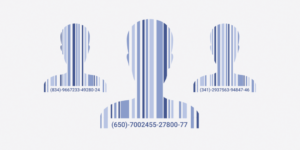One question that intrigues internet users is do small businesses really want their online users to be tracked by big tech? The fact is mobile sales are driving retail purchases around the world. By the end of 2021, mobile commerce sales are projected to exceed USD $3.56 Trillion, a 22.3% increase compared to the start of the year. That is a mind-boggling amount of money and the reason why so many individuals and small businesses are leaping to offer the best websites, eCommerce platforms, and mobile-ready shopping experiences for consumers.
Do a quick Google search for any website developer in Australia, and you will most likely find a service called “Data Analytics.” This is a specialized area of website and eCommerce design where every single customer touchpoint between you and the store is tracked, logged, and analyzed until the last possible cent is squeezed out of your pocket book.
No one is expecting businesses to be bastions of moral or ethical leadership. After all, the point of a business is to make money. However, the methods used to generate this data are often based on tracking our mobile and online activities using cookies, GPS data, metadata, and more. That is why when you do a quick search for an organic toilet bowl cleaner, you suddenly see ads on Facebook or Instagram related to “cleaning services near you.”
How is Big Tech Tracking You Online?

Everything comes back to advertising revenue. Most major tech platforms like Facebook, Google, Amazon, Twitter, and more rely on people, organizations, and businesses purchasing ad space on their sites, and sales are going great for these Big Tech companies! In 2010, the total ad sales of most internet-based companies were barely notable. Today, the annual ad spend is close to USD $80 billion and more, depending on the service you are looking at.
In Australia alone, political parties and organizations have posted more than 4,000 online ads spending upwards of AUD $8 million just for Google since 2020. That does not include ads purchased on Facebook, Twitter, or other social media platforms. These are elected officials using targeted advertising to buy your vote. Consider the privacy implications of a political activist screaming that we should all have stricter online privacy standards, while using the very same companies they are raging against to stay in power. Makes you think.
This is all happening due to cookies and metadata. When we agree to certain device and website terms of service, we often do not read the fine print explaining that we are granting these companies to track our on-site and off-site activity. These companies use small text files with pieces of data that identify who you are and what you are doing – called cookies. These cookies offer a trail of crumbs that outline a complete user profile companies like Facebook can then leverage. They sell ad space targeting users like 40-year-old men who like to fish and own a cat living in an apartment in Sydney. Yes, it does get that specific.
Companies are also selling ads based on our geographic location. Most devices come equipped with location services that enable websites and apps to deliver ads based on if we are near the ocean, next to a restaurant, or picking up a pint at the local pub. That is why we see ads for discount lady’s stockings while walking near a department store.
Where do Small Businesses Come into Play?

So now that you understand more about how you are being tracked and the purpose of advertising space, what about small businesses? There are more than 2.3 million small and medium-sized businesses in Australia as of 2018. They make up 99.8% of all enterprises in our country and employ more than 7.6 million people – roughly 68% of total employees in the private sector.
That is a significant portion of our economy resting on the shoulders of everyone from the local plumber to the 5-Star hotel and resort. They need revenue just as much as the guy shining shoes outside the opera house. Do they engage in ad buying? You bet! Total Australian digital advertising hit AUD $11 billion in the fiscal year 2021.
These targeted ads deliver relative content to users who are clamoring for a more personalized experience. Younger audiences and those embracing the broad reach of technology often celebrate receiving ads and content relative to their personal interests and hobbies.
Privacy advocates call this foolish because they understand that in order for Big Tech to deliver that kind of service, they must track our every online movement. Unfortunately, this places small businesses in a rather hairy situation. They have to choose between maintaining and growing profits using digital ads or tossing out the technology and risking losing everything due to competition.
Amnesty International did a recent survey of German and French consumers and found that SMEs (small and medium-sized businesses) actually do not like tracking-based ads. In reality, 3 out of 4 SME leaders believe tracking-based ads undermine people’s right to privacy and other human rights. This has a lot to do with social justice and Big Tech having extreme dominance over the market.
When you have only a small collection of international companies controlling the online economy, you essentially allow a pay-to-play system to exist. Instead of there being a free market system, you have gatekeepers that require a fee to reach targeted consumers. This is tipping the playing field in favor of those with more resources to spend money, something not every business has.
Where do We Go from Here?
So if a large portion of SME leaders do not want tracking and the calls for privacy rights are getting louder and louder by consumers everywhere, what happens next? The sad truth is probably very little.
There is so much money changing hands by some of the largest tech companies in the world that you cannot expect to see a drastic change anytime soon. There simply is not enough incentive for these companies to cut back on their data tracking.
The difference is in the hands of you, the individual user. You can change the world by choosing to protect yourself and your identity online using customized tools and applications that prevent active tracking of your daily life. The more people that use these tools, the less money will exchange hands.
That is where we can help. At Freedom Technology and Services, we offer an array of customized privacy products from deGoogled Phones to Faraday Bags to refurbished PCs. Our equipment includes specialized operating systems, software, and hardware that make it next to impossible for Big Tech to track your online movements.
We are supplying a rising section of the populous that wants to fight back against constant tracking. Every one of our products helps keep your messages, shopping, searches, and other activities away from the prying eyes of companies like Facebook, Google, Twitter, Instagram, YouTube, and more.

Visit our Australian-based store today. We are growing quickly and will begin offering shipping and distribution to other counties as our supply chains are solidified. We are taking our time to ensure every one of our end products adheres to our personal level of quality before reaching your hands. Your privacy matters, and even the owners of small businesses are reading the tea leaves to know a change is coming soon.




